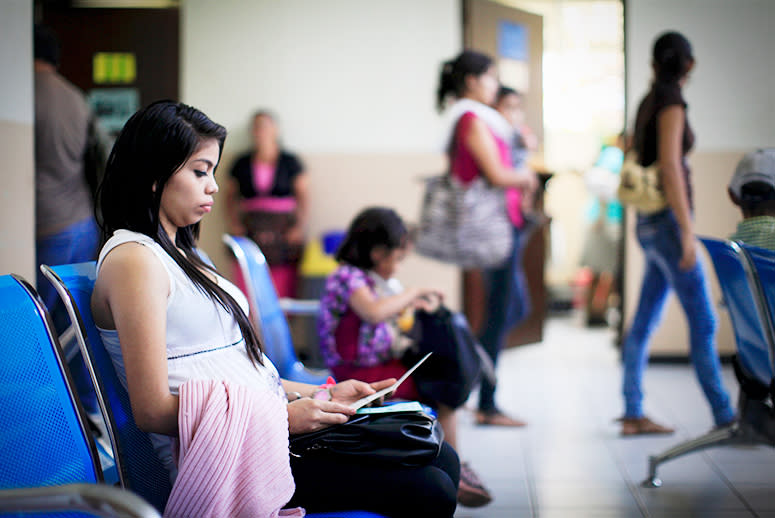Here’s the Problem With Telling Women in El Salvador Not to Get Pregnant

El Salvador’s government is warning women not to get pregnant until 2018 because of the mosquito-borne Zika virus, which has been linked to severe deformities in babies. But health advocates say that advice isn’t just misguided—it’s wildly unrealistic.
The warnings, which have been echoed in Colombia, Ecuador, and Jamaica, are expected to be heeded in a region where about half of all pregnancies are unintended, abortion is largely outlawed, and access to contraceptives is limited.
“This is another example in which women’s bodies become the place of control, instead of directing the public crisis, which is this illness,” said Tarah Demant, senior director of the Identity and Discrimination Unit at Amnesty International USA. “We just turn and say, ‘Ladies, don’t have babies.’ ”
The government recommendation is particularly challenging in El Salvador, where many women face barriers to obtaining birth control and abortion is criminalized with no exceptions—meaning a woman and her doctor can be jailed for terminating a pregnancy, sometimes even in instances of a miscarriage if she is falsely accused of having an abortion. Between 2000 and 2011, more than 100 women in El Salvador were prosecuted for abortion-related convictions, according to the Center for Reproductive Rights. Seventeen women are behind bars for such crimes, some of which were charged as aggravated homicides, resulting in up to 50-year sentences.
“Women and girls already live in fear of getting pregnant,” Demant said. Not only that, but the recommendation is “so tone-deaf to women and girls that are raped or victims of incest,” she said, noting that gender-based violence is prevalent in many parts of South America and that poor, rural, and indigenous girls and women have the least access to contraceptives.
The first cases of Zika were identified in Brazil last May, and it has now been reported in nearly two dozen countries and territories throughout the Americas. The World Health Organization estimated on Thursday that as many as 4 million people could be affected by it, and will meet on Monday to determine a course of action for curbing the epidemic. In Colombia, which boasts the second-highest rate of Zika infection—13,500 cases have been identified in the last three months—authorities are urging women to delay pregnancy for up to eight months.
Giselle Carino, deputy director for the International Planned Parenthood Federation’s western hemisphere region, called El Salvador’s response to the Zika virus “insufficient at best,” but she hopes it will trigger legislators in that country to reconsider their ban on abortion, which was criminalized in 1998. A United Nations agreement drafted in 2013 urged governments in Latin America to legalize abortion as a means of improving quality of life.
“The Americas are a region in which there are huge inequalities. When you talk about contraception, this means that there isn’t equal access,” Carino said. Chile, Nicaragua, Honduras, and the Dominican Republic all have abortion bans with exceptions in cases where it could save a woman’s life.
The International Planned Parenthood Federation partners with nongovernmental organizations to provide reproductive health services and contraceptives to women throughout the Americas, including a fleet of mobile health units that provide contraceptives, STI testing, and cervical cancer screening. Contraceptive usage in El Salvador has risen to 72 percent, which is comparable to usage in developed countries including the United States, according to data compiled by the United Nations.
It’s a vast improvement over previous decades: Contraceptive use in El Salvador hovered around 50 percent in the 1990s and was just 20 percent in the 1970s. But advocates still worry that many young people and people living in rural areas face barriers in accessing those services because of physical distance, lack of sex education, and religious and cultural stigmas, Carino said. The gap between planned and unplanned pregnancies is widest among poor women.
For these reasons, the response to the Zika virus “needs to be more comprehensive,” she said. “It can’t just be ‘Women shouldn’t get pregnant.’ ”
Related stories on TakePart:
• Jailed for Miscarriage, Women Reveal the Cost of Criminalizing Abortion
• Lawmaker to Gun Buyers: Wait the 72 Hours Required Before Getting an Abortion
• Why Jemima Kirke Had an Abortion Without Anesthesia
Original article from TakePart

